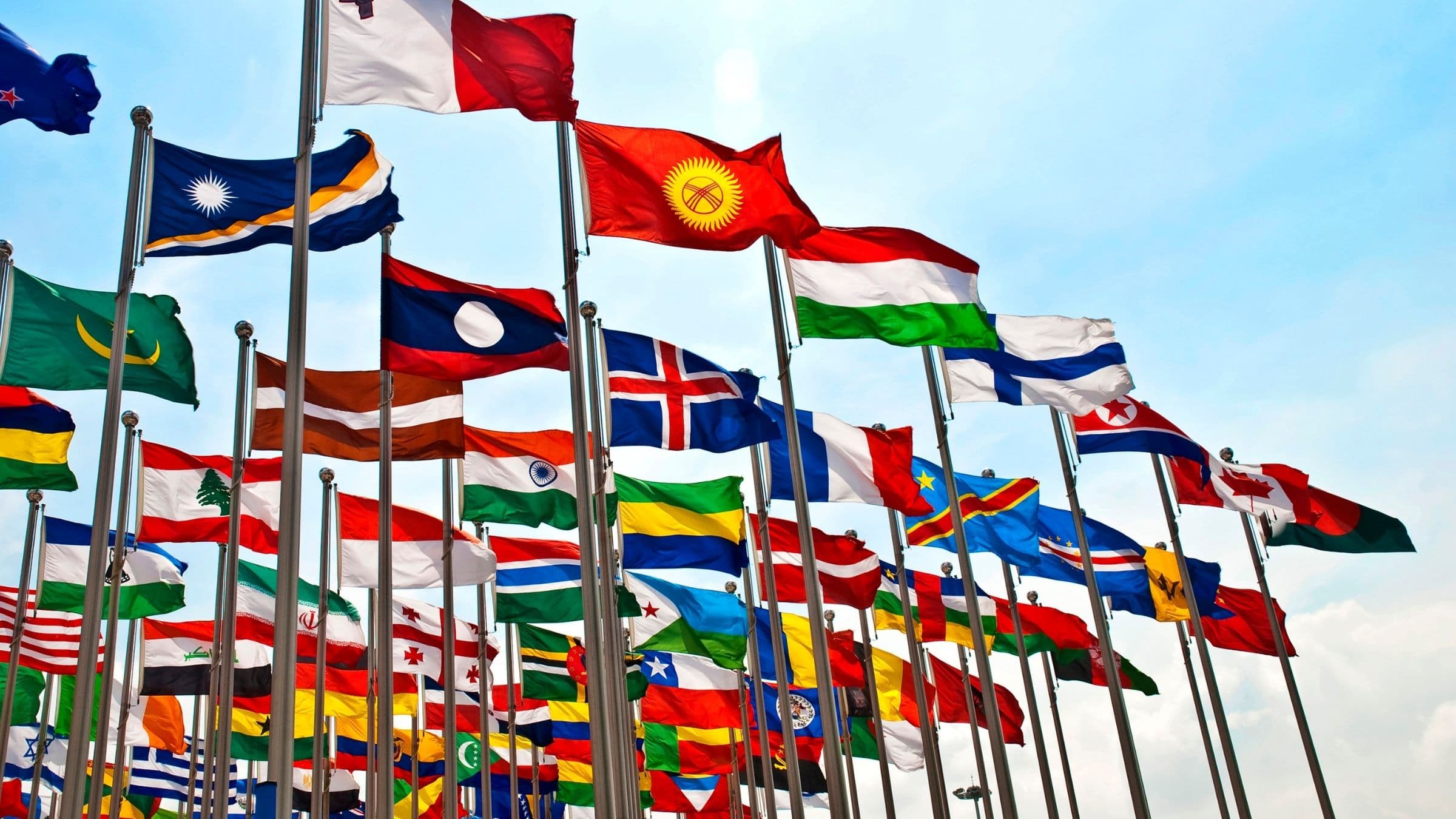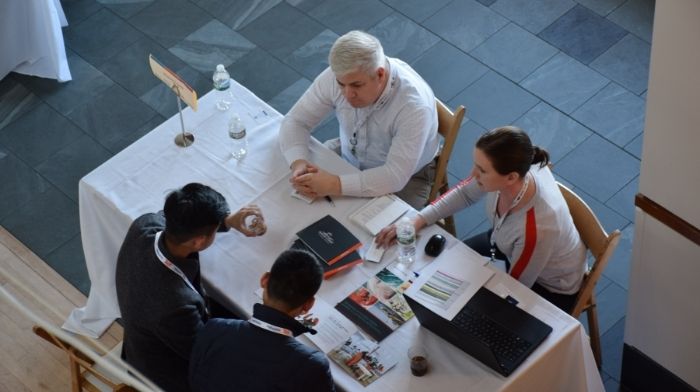
COUNTRY PROFILE
Discover more about the Algeria market including overviews about the retail, foodservice, and food-processing sectors. Events, resources, and more are linked throughout the profile.

3rd
largest U.S. export market for processed foods in North Africa

$3.9 Million
U.S. exports of processed foods to Algeria

10th
most populous country in Africa
Euromonitor reports that the economy in Algeria grew in real terms in 2022, driven by rising public and private spending, capital investment and external demand. However, the global economic slowdown, elevated inflation and tightening financial conditions are set to undermine business and consumer confidence globally, weighing on the country’s economic outlook.
In 2023 Algeria had a population of 44.7 million (CIA World Factbook Est.). The median age was 28.9 years, and the population growth rate was 1.6%. The percentage of the population over 65 years old is 6.9%, which is about 3.5 million people. Algeria is the 10th most populous country in Africa, and the 32nd most populous country in the world. It is also the largest country in Africa and the 10th largest country in the world based on land mass.
USDA’s Office of Agricultural Affairs, Foreign Agricultural Service Office (FAS) in Algiers reports that the desert covers more than four-fifths of the country. Hydrocarbons have long been the backbone of the economy, accounting for roughly 30% of GDP, 60% of budget revenues, and 90.5% of export earnings (2020). The agriculture sector is one of the priority sectors for the government in its efforts to diversify the economy and attract foreign and domestic investment outside the energy sector. The agriculture sector contributes on average 12% of Algeria’s GDP and employs 20% of the population in rural areas. Algeria has 8.5 million hectares of arable land. Algeria’s imports of agricultural commodities and food represented 23.5% (US$8 billion) of total imports (US$34.4 billion) in 2020. The government divested itself from agricultural production and processing, allowing the private sector to take the lead. The private sector comprises wheat and feed millers, dairy processors, vegetable oil refiners, sugar refiners, beverage producers, canners, and a pastry industry. The distribution and hotel, restaurant and institutional (HRI) sectors are both growing but need further development.
Algeria is the third largest U.S. export market for processed foods in North Africa. U.S. exports of processed foods to Algeria reached an all-time high of US$77.1 million in 2021. In 2022 those exports dropped 87% to US$10 million, a loss of US$67.1 million which adds to the U.S. trade deficit in food and agricultural products. By year to date (YTD) October 2023, U.S. processed food exports dropped again, 57% to US$3.9 million. That equates to US$5.2 million, a total of US$72.3 million added to the U.S. trade deficit.
Top U.S. processed food exports to Algeria in 2023 included:

$13.1 Billion
estimated total retail sales in the packaged food market in 2023

39.9%
growth rate of retail sales in the packaged food market since 2019

$19.2 Billion
expected growth rate of retail sales of packaged food by 2028
According to Euromonitor, retail sales in the packaged food market in Algeria reached US$13.1 billion in 2023. That represents a growth rate of 39.9% or US$3.7 billion since 2019. By the year 2028 the retail sales in the packaged food market in Algeria is expected to reach US$19.2 billion, a growth rate of 35.6% and US$5 billion from 2024.
High growth products in the forecast include:
Euromonitor reports that grocery retailers are a highly fragmented category in Algeria, with only three named brands holding sub-decimal shares, whereas “others” holds the dominant percentage. Brand Uno from Numidis SpA takes the lead by a tiny margin, followed by private label Carrefour Algérie (Carrefour-HDA) and Ardis (Arcofina Holding). Uno, in particular, benefits from its Cevital production plants, with Cevital being the largest private conglomerate in Algeria, with interests in the agri-food sector, retail, industry, and services.
As such, this local production was especially beneficial as supply chain disruptions affected food availability in the country. Social media often reported that outlets such as Ardis had empty shelves, so this situation gave a competitive advantage to Uno. It could leverage Cevital’s production capacity to continue catering for consumers, while a ban on imported products meant the parent company could also redirect exports to the local territory through wholesalers in general and its chain of Uno stores.
Numidis SpA operates the Uno and UNO City brands in modern grocery retailers, with well-established retail chains in hypermarkets and supermarkets. The subsidiary of Cevital was the first and remains the largest chain of hypermarkets, and UNO City remains one of the largest chains of supermarkets in Algeria. Indeed, it has continued to grow since its creation in 2007 and the opening of its first store.
One of the main obstacles to the expansion of modern grocery retailers is limited consumer access, as Algeria is primarily a rural country. While urbanization is taking place and supermarkets continue to expand, traditional grocery retailers remain popular due to the geography and local habit. Traditional grocery retailers benefit from being more widespread across Algeria, offering cheap and local products in both urban and rural areas. Their convenience and low prices have helped them to maintain a loyal customer base, especially as Algerians still prefer to shop for groceries daily. In line with this, players which operate several grocery retail channels are expected to focus on smaller store formats such as minimarts – smaller neighborhood supermarkets – which will enable them to locate in residential areas, closer to consumers.
As noted, there are low levels of penetration in modern retail channels (such as supermarkets and hypermarkets) due to the rural geography of Algeria and the longstanding shopping habits of Algerian consumers, who continue to shop for small baskets on a frequent basis and favor traditional and local outlets. While the geography of the country does pose some challenges to more widespread expansion, these low levels of penetration also offer opportunities for modern retail players to open new outlets. It is expected that we will see further expansion of this kind over the forecast period and, as this trend unfolds, competition from large format outlets such as hypermarkets will likely translate into added-value services, to support growing demand for shopping outlets to also offer some element of entertainment to consumers.
However, performance here will also largely depend on the recovery of the economy. Nonetheless, the modern channel is expected to benefit from consumers gradually migrating from traditional grocery retailers. Algerian consumers will become increasingly dissatisfied with the traditional channel and its significant lack of supplies in comparison with the modern channel. Likewise, the rapid expansion of modern grocery retailers will attract more consumers as the channel becomes more accessible.
The rising cost of food is affecting the performance of grocery retailers, leading to positive value growth whilst also placing pressure on consumers’ finances. Despite government initiatives to delay a planned restructuring of food subvention and value added tax (VAT) on essential products, food prices have continued to rise in Algeria. The situation was worsened by a temporary import ban on products such as sugar, vegetable oil, and wheat derivatives, giving ground for speculators and leading to shortages in products such as meat and milk.
This sector is growing, yet it still needs further expansion. The opening of five-star international hotel chains as well as local three-star hotel chains increases demand for imports and ingredients. Domestic fast food and new restaurant chains are growing as well.
Although the local food manufacturing industry is improving, the sector is fundamentally dependent on imports of ingredients and raw materials. In addition, population increase, growing demand for convenient processed foods, as well as improved production capacities favor the expansion of the food processing industry. These conditions support demand for ingredients and create opportunities for increased U.S. exports into Algeria.
